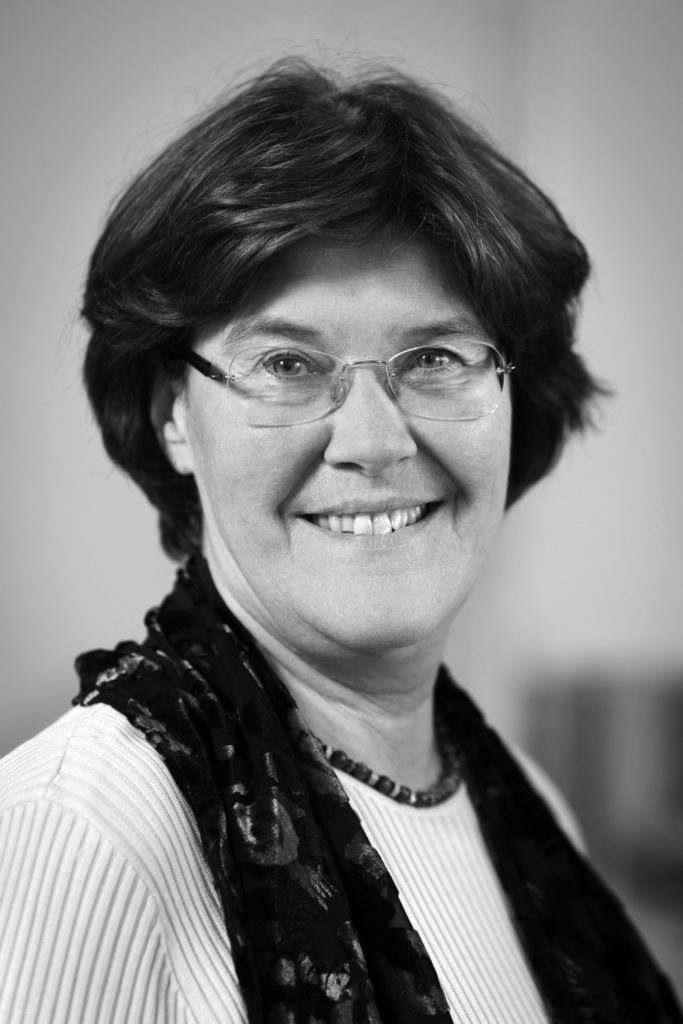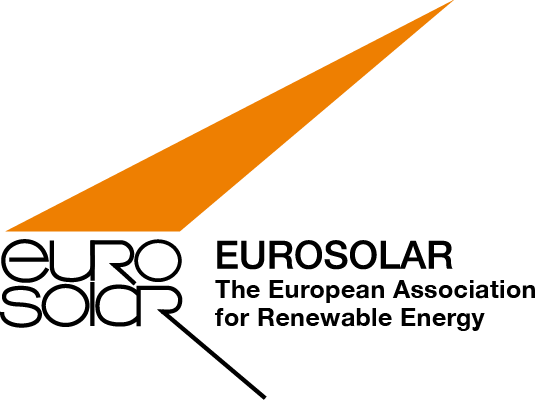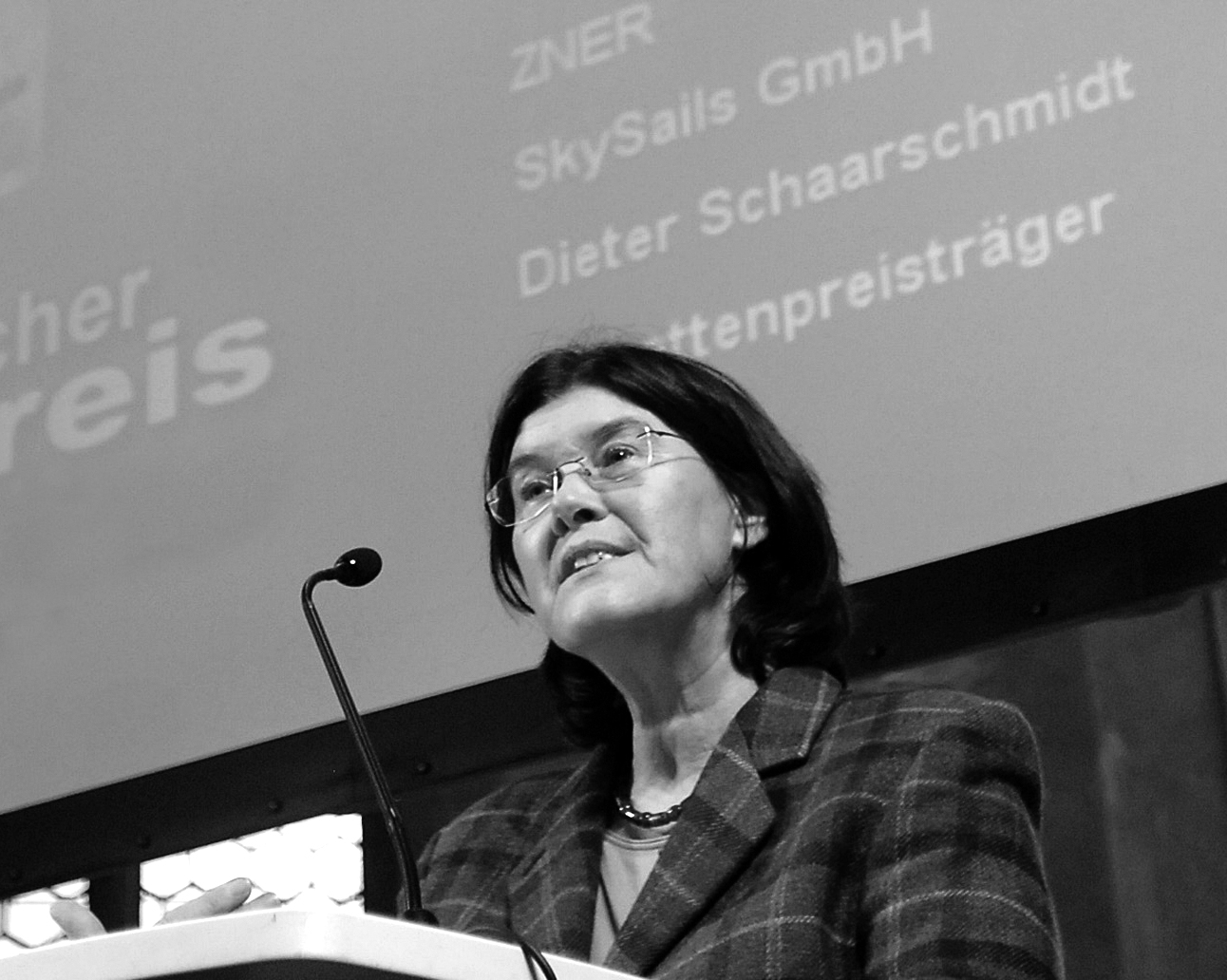by Irm Scheer-Pontenagel
On 8 November 2023, long-time EUROSOLAR board member Rosa Hemmers died suddenly and unexpectedly after a short, serious illness. We were all surprised and saddened by her death.
I got to know Rosa Hemmers in 1988 when we founded EUROSOLAR with Hermann Scheer and many others. As a qualified geographer and, at the time, long-time project manager of the renewable energy information service BINE (1980 to 1990), she utilised her extensive experience in the field of renewable energies. She impressed with her skills and knowledge, which she continuously contributed to the development of EUROSOLAR – and especially after the founding of the German section (1992). She was elected Vice-Chair of the German Section in 1994 and was re-elected by the General Assemblies in 1997, 1999 and 2002. She became Chairwoman of the German Section in 2005 and 2007 and was also Vice President of EUROSOLAR.
At Stadtwerke Aachen (STAWAG), Rosa Hemmers headed the Energy Efficiency and Innovation department from 2001 to 2017. She applied her practical expertise from working for a large municipal utility to her project work at EUROSOLAR. She quickly became a valued expert on regional energy supply issues.
In 1994, I presented the programme for a “Municipal Solar Energy Initiative (KSI)” in our member magazine SOLARZEITALTER, as a position on issues of energy security at municipal level. Following the EUROSOLAR conference “Renewal of communities and regions with renewable energies” in Ulm in 1996, the results of the conference were published in 1998 as a book and guide for associations and local authorities. In 2006, EUROSOLAR founded the “Municipal Utilities with Renewable Energies” conference series, which is still held annually today.Hermann Scheer’s book “Energy Autonomy – A New Policy for Renewable Energies” served as a fundamental argumentation aid in discussions. Rosa Hemmers supported us at all conferences: “Her topic” was and remained the “remunicipalisation” of the energy supply with renewable energies, decentralised and regional with programmes for the direct linking of production and consumption as a demand.
In 2004, she formulated the programme “Municipal utilities with a future” in the commemorative publication for Hermann Scheer’s 60th birthday and contrasted this with the then policy of municipal utilities without a future.
This year, the 15th EUROSOLAR Municipal Utilities Conference took place under the motto: “Energy transition by citizens and municipalities”.She wrote that it was about the importance and potential of municipal utilities and citizen cooperatives for an innovative decentralised and renewable energy supply … with the interaction of municipal utilities and energy cooperatives.”
This year, the 15th EUROSOLAR Municipal Utilities Conference took place under the motto: “Energy transition through citizens and municipalities”. She wrote that it was about the importance and potential of municipal utilities and citizens’ cooperatives for an innovative decentralised and renewable energy supply … with the interaction of municipal utilities and energy cooperatives. “Renewable energies can play to their strengths particularly well where production and consumption are close together.This is the local level, where all existing potential can be optimally utilised for the climate-friendly supply of electricity, heat and mobility” (SZA 1/2023).
Rosa Hemmers was not only active as a volunteer for EUROSOLAR in various positions. When EUROSOLAR initiated the “Grüner Strom Label e.V.” association in 1998 together with other environmental organisations such as BUND, NABU, IPPNW and others, she took over the management of the association for many years. This important association awards seals of approval for green electricity – and since 2014 also for green gas – and ensures greater credibility and transparency on the green energy market with its certifications.
EUROSOLAR was founded by Hermann Scheer as an international organisation under German law. This was reflected in the name of the organisation. In 1989, the first national sections were founded in Italy and Austria.
With this and the founding of the German section, the largest section, an association organ for communication became a central task of the European organisation. The “SOLARZEITALTER – Politik, Kultur und Ökonomie Erneuerbarer Energien” (SZA), a quarterly magazine for German-speaking countries, was created using various formats and layouts. As editor for many years, I saw it as my most important task to provide members with comprehensive information about EUROSOLAR’s activities in our print medium – in addition to the digital information level. Rosa Hemmers was an active member of the editorial advisory board from the very beginning. When I handed over the editorship to EUROSOLAR in 2022 after more than 35 years, I was very pleased that Rosa Hemmers immediately felt responsible for the continuation as a member of the board and made it clear in her editorial for issue 1/2023 that she would maintain the design of the SOLARZEITALTER in its current form.
Unfortunately, this one issue has remained her responsibility. Her involvement in and organisation of EUROSOLAR’s activities in and for the EUROSOLAR association was extensive. She was not only active on the various boards, on the editorial advisory board of the SZA and on the jury for the German and European solar awards.
She also took on important tasks at national and international conferences and felt jointly responsible for the work of the EUROSOLAR office, especially during the difficult times of the pandemic. Cancellations of EUROSOLAR conferences and reduced working hours for employees became necessary and were stressful. As she was also treasurer at times, she was aware of the problems faced by non-profit organisations and knew about the fundamental role of membership recruitment, the basis of independent financing. As a member of the Board of Directors, she has been responsibly committed to all of this, especially since 2015. Perhaps it was sometimes too much. This became clear in personal conversations when we talked about our role as “grandma”. For her, this stage of her life was quite new compared to my role. On such occasions, she emphasised that it would soon be time to “step back a little” so that she could “accompany” her granddaughter as she started out in life. I would have liked her to do so.
My thoughts are with her daughter and granddaughter and I share their grief!
Irm Scheer-Pontanagel


